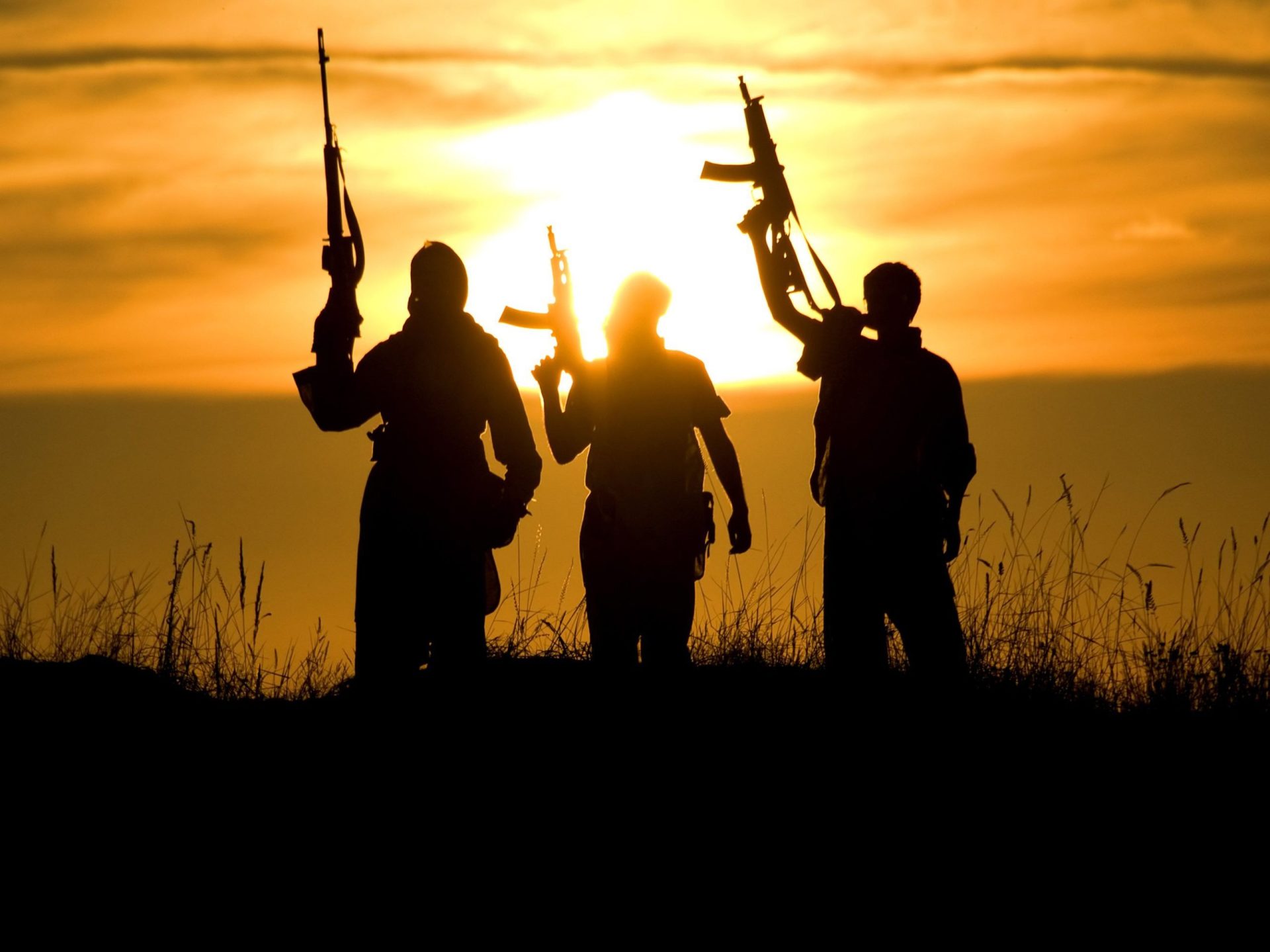4 terrorists were killed in an exchange of fire between security forces and terrorists in Asman Manza area of South Waziristan tribal district of Khyber Pakhtunkhwa, while 6 brave soldiers were martyred.
On the other hand, while talking to the media in Karachi, Caretaker Prime Minister Anwarul Haq Kakar said that terrorism and extremism will be eradicated from the country, we will not bow down to extremism, we will not lay down our arms, we will not take the lives of innocent people in any way. Not allowed either.
The nation salutes the young men who laid down their lives for the country. Undoubtedly, such sacrifices of our brave soldiers strengthen our resolve.
There is no doubt that Pakistan’s security forces are at the forefront of the war against terrorism, engaged in numerous military operations and counter-terrorism measures, laying down their lives to protect the nation.
They have shown significant progress in dismantling terrorist networks, but despite all efforts, eliminating terrorism completely is not an easy task.
The way terrorist incidents are happening frequently in Khyber Pakhtunkhwa, it seems that the situation is going back to the same old situation, when there were suicide attacks in some places of Peshawar in Khyber Pakhtunkhwa and innocent people were killed. Individuals used to be martyred, but this time ordinary people are not being targeted, rather the police and security forces are being targeted.
Earlier, TTP has repeatedly said in its statements that our target this time is the security agencies and we see that only police personnel are losing their lives in this war, including Peshawar, in other areas of the province. The Bajoor blast has changed the situation, whoever carried out this suicide attack, it is a dangerous sign.
If we look at history, terrorism has been a constant challenge for the province of Khyber Pakhtunkhwa and Pakistan, which is a threat to the stability, security and development of the country.
Over the years, the country has witnessed the devastating effects of extremist violence that has claimed countless innocent lives and paralyzed various sectors of society. Despite concerted efforts to combat terrorism, the issue has become a serious concern that warrants constant vigilance and collective action from all sections of society.
During any important festival or religious event in Khyber Pakhtunkhwa, Afghan refugees are banned from entering urban areas and announcements are issued to confine them to camps, but these measures are limited to announcements.
A large number of Afghan refugees do business in major commercial centers of every city in Khyber Pakhtunkhwa, including Peshawar. The largest number of illegal immigrants are also residing in Pakhtunkhwa, especially Peshawar.
At the end of the first Afghan war, those thousands of Mujahideen from Arab and African countries remained in Pakistan because their own countries refused to accept them.
Be it the policies of General Zia-ul-Haq or General Pervez Musharraf, our land has become blood-soaked and till today we are not able to get out of it. Some take up arms in the name of nationalism and some in the name of religion and kill those whom they consider to be their opponents. For the last three decades, Pakistan has been fighting the war against terrorism with all its might with limited resources.
Terrorism in Pakistan has deep roots which are connected with a combination of internal and external factors. One of the main drivers is long-standing political instability and weak governance, which has created an environment conducive to the growth of extremist ideologies and militant groups.
Furthermore, Pakistan’s strategic location makes it susceptible to becoming a battleground for regional and international conflicts, further fueling the spread of terrorism. Pakistan’s policy makers believed that establishing a friendly and sympathetic government in Afghanistan was very important for us. We have harbored this rare notion since the 1980s, and are still in the same complacency after the Afghan Taliban came to power for the second time.
After the withdrawal of the Soviet Union in 1989, we tried to establish a Mujahideen government in Afghanistan, but Afghanistan entered a new era of chaos, but we kept the idea of our friendly government alive.
The idea of a friendly government gave rise to the Taliban and they were given access to power twice, but the dream of a friendly government in Afghanistan has not been realized shamefully. Even today, terrorist activities in Pakistan cannot be seen separately from Afghanistan.
There is no doubt that our North West border is the most dangerous and insecure today. Afghanistan is still the biggest refuge of terrorism against Pakistan, the concept of a friendly government in Afghanistan was correct but the continuous incidents of terrorism are indicating that things have turned upside down. The group interests of the Taliban in Afghanistan come first. The Taliban are constrained by local realities and we don’t complain about them.
There is no evidence of any change in the dominant thought in Pakistan, there is no coordination at the state level on important fundamental aspects. Even a citizen of Pakistan does not know where the center of this so-called policy is.
No one cares if the new generation is suffering from ideological extremism or political and cultural extremism. The performance of the state is zero in this regard, it is felt that the state is not considering extremism as a threat to national security.
The reaction of the international financial institutions will certainly be negative. Economy, regional and national politics and terrorism have raised questions of our survival.
People who think about it need to take practical steps. We need to rethink terrorism.
Taking this issue lightly cannot rule out the possibility of further increase in terrorist activities. We need a change in our attitudes and education curriculum. Islam is a religion of peace, it is an un-Islamic concept to enforce it aggressively and by war.
The number of security agencies is very low in proportion to the population. Moreover, they are removed from their primary responsibilities and assigned only to the personal protection and protocol of certain personalities and the public is left defenseless as soft prey for terrorists.
Recruitment of administrative bodies and police personnel on political grounds is an obstacle to peace. The police department needs to be freed from political influence and made a professional organization.
Being a developing country we also suffered economic pressure but we won the war against terrorism. We not only eradicated various terrorist groups within our country but also took measures to prevent them from entering Pakistan.
There is a long and difficult border between Afghanistan and Pakistan, which is 2640 km. Terrorist leaders knew that once the fence was completed, it would be difficult to carry out operations in Pakistan. They used every tactic to stop the fence, the security forces were targeted in which many of our officers and jawans were martyred but the work continued, now this work has been completed.
The international community should continue to help and support Pakistan for the establishment of peace in the local region and the world so that the remaining terrorist groups can be wiped out. Pakistan is fully capable of fighting and defeating terrorist organizations.
The government should address all the motivations and causes at the national and global level that terrorist elements use as fuel for their nefarious agenda. Clear and positive changes in these policies are needed so that these causes and conditions Triggers can be eliminated.
Similarly, if the world powers and Pakistani agencies do not pay attention to the real problems, difficulties and grievances of the people and abandon the two-pronged policy to end terrorism, then the real restoration of peace will remain just a dream.
(function(d, s, id){
var js, fjs = d.getElementsByTagName(s)[0];
if (d.getElementById(id)) {return;}
js = d.createElement(s); js.id = id;
js.src = “//connect.facebook.net/en_US/sdk.js#xfbml=1&version=v2.3&appId=770767426360150”;
fjs.parentNode.insertBefore(js, fjs);
}(document, ‘script’, ‘facebook-jssdk’));
(function(d, s, id) {
var js, fjs = d.getElementsByTagName(s)[0];
if (d.getElementById(id)) return;
js = d.createElement(s); js.id = id;
js.src = “//connect.facebook.net/en_GB/sdk.js#xfbml=1&version=v2.7”;
fjs.parentNode.insertBefore(js, fjs);
}(document, ‘script’, ‘facebook-jssdk’));



